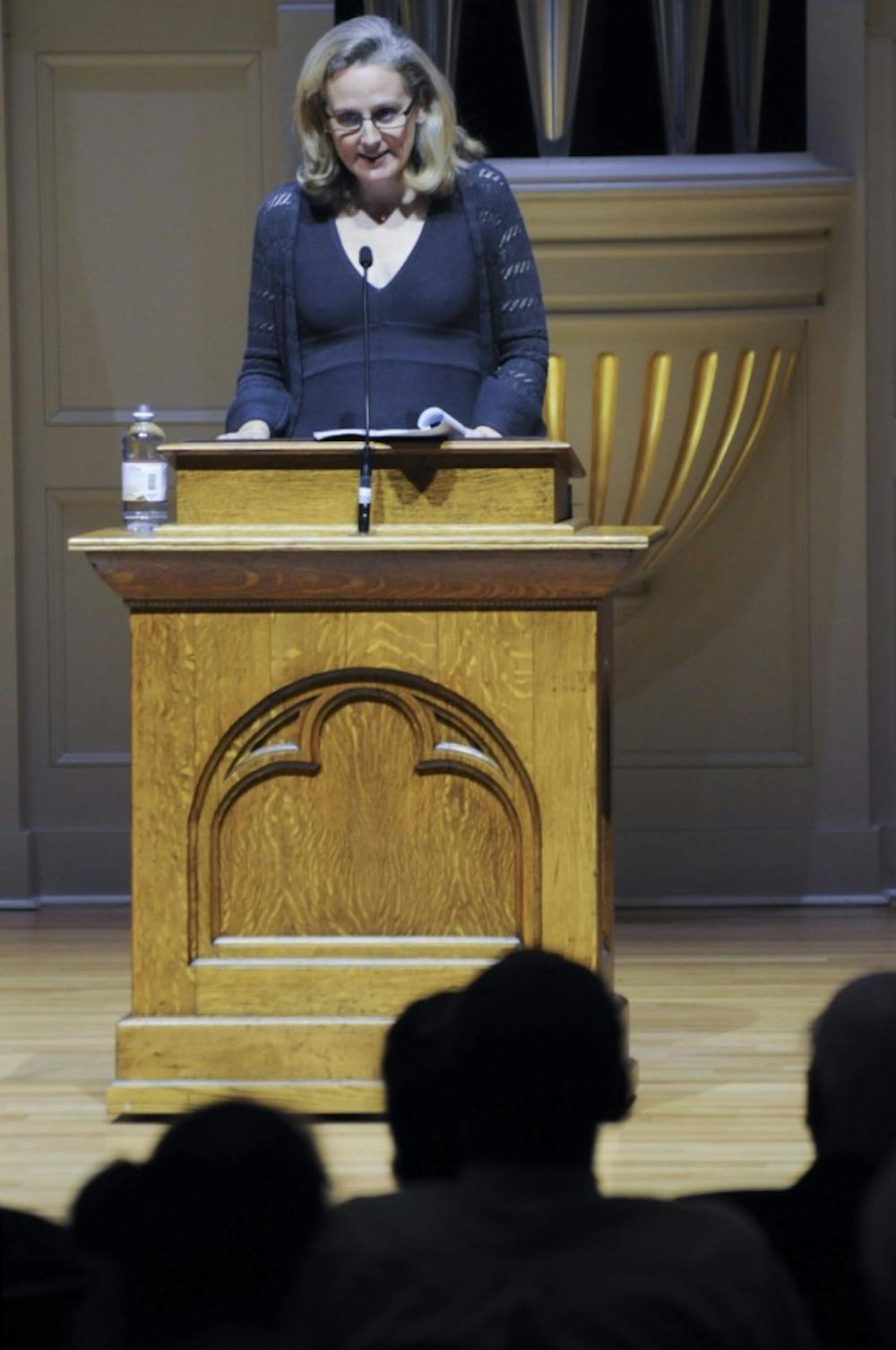On April 4, Elon's Society of Professional Journalists, the School of Communications, and the Truitt Center hosted Nicole Winfield, Vatican correspondent for the Associated Press. Winfield discussed the balance between critical and delicate coverage when reporting on religious figures as well as the stories she covered in her years at the Vatican.
The night opened with a somber reminder of the sacrifices journalists make to preserve freedom of the press. Two of Winfield’s AP colleagues, Anja Niedringhaus and Kathy Gannon, were shot last week while covering the conflict in Afghanistan. Gannon is in recovery, but Niedringhaus was killed.
“I have a pretty low risk assignment, but there is another side of reporting. Religious reporting can be particularly dangerous,” said Winfield. “Religion matters to people; they take it very seriously."
At the Vatican, Winfield has covered three popes—John Paul II, Benedict XVI and Francis. She has unique insights into each papacy. Throughout her lecture, Winfield put personal stories to the headlines coming out of the Vatican.
When Pope Francis told reporters “who am I to judge” if someone is gay, reports of a new progressive era for the Vatican swept across the world. Winfield, however, does not believe we can go as far as to say he is the ‘gay rights pope.’
“Don’t let Francis’ positive appeal mislead you; he’s a conservative Catholic,” said Winfield. “He doesn’t care for a lot of ‘small minded rules,’ but there are some rules that form the core of church doctrine. Those won’t change. He is still against abortion and gay marriage.”
Several students who attended the lecture remarked that they did not know Francis’ comment had been misconstrued.
“I was surprised to hear her say Pope Francis is a conservative pope,” said sophomore Shelby Lewis. “You always hear the media frame him as a champion of social justice. It’s interesting to hear that many of his quotes have been taken out of context.”
Winfield has had a front row seat to some of the Vatican’s most precarious moments. She shared her insights into the three papacies, noting how each one handled controversy within the church.
She describes Pope Benedict XVI as an academic with a gentle soul. Though he had problematic relations with Jews, Winfield insists he made efforts to mend ties later in his career. His relations with Muslims, however, were not as friendly.
Francis, on the other hand, has made a name for himself as the “interfaith” pope. He has held prayer services with people of many faiths, and even washed the feet of Muslim men. Winfield recalled the time Pope Francis hosted Jewish guests and “kosherized” the Vatican kitchen.
“Do you know what that requires? You have to bring in a rabbi to bless it and cleanse the oven by burning off impurities and do all this stuff to make sure it’s kosher,” she said. “That doesn’t happen every day at the Vatican.”
Winfield, who is Catholic, spoke about questions of objectivity when reporting on the Vatican.
“I cover the Vatican as I would cover any other institution. I treat it as a bureaucracy, but I go at it with an incredible amount of respect for my readership and the person I am covering,” she said.
Anthony Hatcher, professor of journalism and advisor to the Elon chapter of the Society of Professional Journalists and the Interfaith Community, helped coordinate Winfield’s visit.
“As an American journalist, [Winfield] has respect for the Vatican and what the pope represents, but I believe her when she says she is tougher and more balanced than most of the Italian press,” he said.
Winfield called her reporting style “informed, critical coverage." Having reported on the sex abuse scandal, tense interfaith relations and Pope Benedict XVI’s controversial stance on condom use, Winfield said covering the Vatican is not a always a comfortable job.
“You never really want to see sausage being made. Seeing it up close can sour you a bit,” she said.


